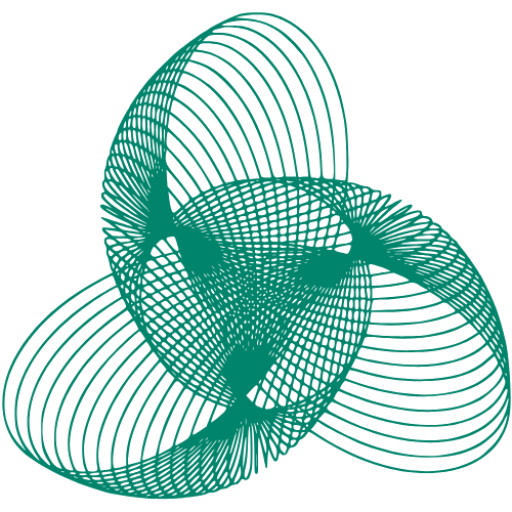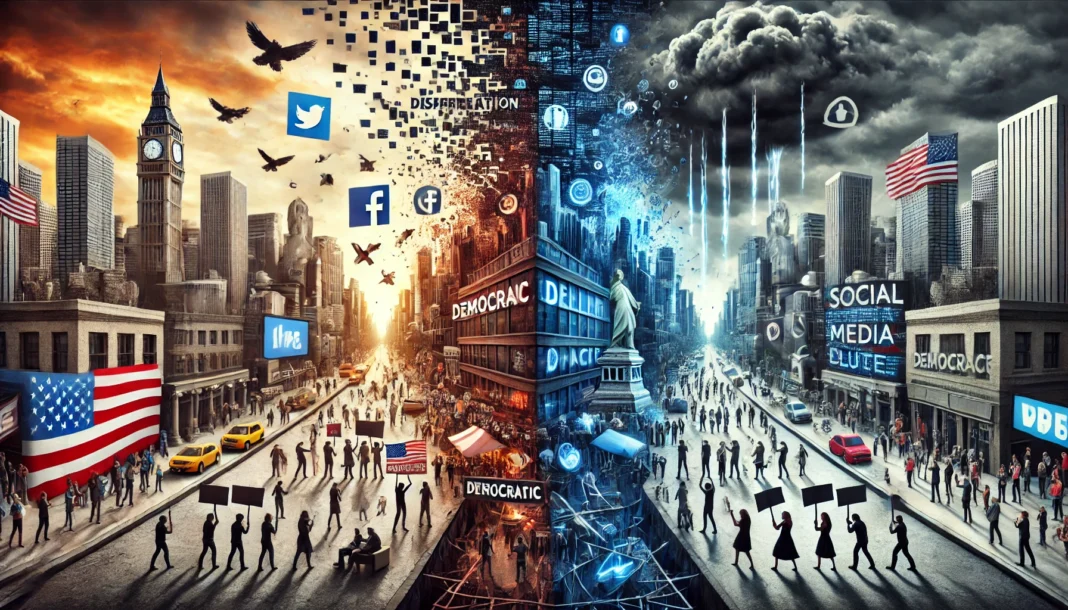Artificial Intelligence (AI) is revolutionizing many sectors, from business to healthcare. But what about democracy? While AI offers exciting potential to enhance governance and improve services, it also poses serious risks to democratic systems worldwide. This technology is reshaping how people interact with political institutions, how policies are made, and how power is distributed across societies. In this article, we’ll explore how AI is disrupting democracies, its challenges, and the opportunities it offers.
The Dual Impact of AI on Democracies
AI has immense power to shape the future. It can analyze data, detect patterns, and help solve problems more efficiently. But it also brings a host of challenges. It threatens privacy, can manipulate public opinion, and may lead to authoritarian control. In democracies, these threats could undermine the very principles of fairness, transparency, and accountability. Yet, AI also offers potential benefits, such as improved public services and greater citizen engagement.
1. Surveillance and Erosion of Privacy
AI makes it easier than ever for governments and companies to track individual behavior. From facial recognition systems to data analysis tools, AI can monitor citizens on an unprecedented scale. In democracies, this could lead to serious privacy violations.
Governments may use AI to analyze social media posts, search histories, or even predict behavior. In some countries, surveillance can feel like a constant, silent presence. We must ask: can democracy thrive in a society where privacy is constantly under threat?
Example of AI Surveillance:
- Facial Recognition: AI systems now identify individuals in crowds. They track people’s movements and record their activities without consent.
- Data Mining: AI tools analyze your online behavior. They create detailed profiles of individuals, influencing how information is presented to them.
These AI-driven technologies often lack transparency and accountability. In turn, they risk enabling governments to track and monitor their citizens more easily, even in democratic societies. Though many democratic nations have privacy laws, AI can slip through these cracks, creating a surveillance state.
2. Manipulation of Public Opinion
AI is now at the heart of disinformation campaigns. Algorithms tailor content to individual preferences, shaping opinions based on personal data. These targeted messages can manipulate voters, pushing them toward specific political views.
Political ads on social media platforms are a great example. AI helps politicians target specific groups of voters with messages designed to influence their behavior. These messages often distort facts, blur truths, and sometimes even fabricate information. In recent elections, AI-powered disinformation has swayed public opinion in ways that are hard to detect and even harder to counter.
Moreover, deepfake technology, powered by AI, makes it possible to create convincing fake videos or audio recordings. These can be used to manipulate perceptions, spread misinformation, or harm reputations. AI amplifies these issues, spreading lies faster and further than ever before.
3. Polarization and the Fragmentation of Public Discourse
AI’s ability to personalize news feeds has deepened political polarization. By tailoring information based on past behavior, AI can create echo chambers. People are exposed mainly to ideas that align with their existing beliefs. This prevents critical engagement with opposing viewpoints, leading to more extreme positions and less consensus.
This fragmenting of public discourse is detrimental to democracy. When citizens only hear one side of an argument, it becomes harder to find common ground. It undermines the essential democratic principle of free and fair debate.
AI and Political Polarization:
- Algorithmic Filter Bubbles: AI feeds users content based on past behavior, reinforcing their biases.
- Echo Chambers: People engage with others who think like them, deepening divides and distorting public discourse.
4. Loss of Accountability in Decision-Making
AI has the potential to make decisions more efficiently, but it also raises questions about accountability. AI systems, especially in governance, are often opaque. We may never fully understand how certain decisions are made.
Governments and private companies may use AI for things like sentencing criminals, hiring employees, or even distributing social services. If these decisions are based solely on algorithms, who is responsible when something goes wrong? If an AI system makes an unfair decision, who do we hold accountable?
In democracies, transparency is crucial for maintaining trust in government. But AI systems are often black boxes, where even experts struggle to understand the underlying logic. This lack of transparency weakens the very foundation of democratic governance.
5. Threats to Electoral Integrity
AI’s role in elections is another area of concern. Algorithms can now target voters with hyper-specific ads, shaping their views right before an election. This creates an uneven playing field, where wealthy political campaigns with access to big data can gain an unfair advantage.
Further, AI-driven bots can flood social media platforms with false information or disrupt online discussions. In some cases, AI-generated content may sway public opinion or confuse voters just before crucial decisions are made. As AI continues to evolve, we must remain vigilant to ensure that democratic elections are free from manipulation.
Table: AI’s Impact on Democracy – Key Facts & Figures
| Impact Area | Current Figures/Stats | Implications for Democracy |
|---|---|---|
| Facial Recognition Usage | 50% of countries globally use AI for surveillance (Source: Freedom House, 2023). | Increased state control over individual freedoms. |
| AI-Generated Content | 30% of online political content in elections is AI-driven (Source: Pew Research, 2024). | Growing influence of AI in manipulating public opinion. |
| Deepfake Technology | 1 in 5 election-related videos analyzed were found to be deepfakes (Source: MIT, 2024). | Misinformation undermining voter trust and electoral integrity. |
| AI in Electoral Campaigns | 40% of political campaigns use AI for targeted ads (Source: Statista, 2023). | Unequal representation and undue influence in democratic processes. |
6. AI’s Potential for Democratic Renewal
Despite these challenges, AI also holds promise for strengthening democracy. It could help make government more transparent, improve public services, and increase citizen participation. AI systems could, for example, streamline bureaucratic processes, reduce corruption, and enhance the efficiency of public services.
AI can also provide more personalized civic engagement tools. Citizens could interact with AI-driven platforms to better understand policies, participate in decision-making, or even access public resources more easily. If managed properly, AI could create a more inclusive and accessible democracy.
Opportunities for Democratic Renewal:
- Transparency in Governance: AI can track government actions, making it easier to hold officials accountable.
- Citizen Participation: AI-driven platforms could help more people get involved in the decision-making process.
- Improved Public Services: AI could make government services more efficient, transparent, and user-friendly.
Conclusion: The Road Ahead for AI and Democracy
AI is reshaping how we live, work, and govern. It brings exciting possibilities, but it also raises serious challenges for democracy. From privacy concerns and surveillance to political manipulation and a loss of accountability, AI presents both risks and opportunities.
For democracies to thrive in the age of AI, we must carefully consider how these technologies are developed and regulated. We need strong laws, ethical guidelines, and greater transparency to ensure AI serves the people, not the powerful.
In this new era, it is up to us to decide how we want AI to impact democracy. Will we let it undermine the values of freedom and fairness, or will we use it as a tool to strengthen democratic institutions? The future of democracy may very well depend on the choices we make today.

